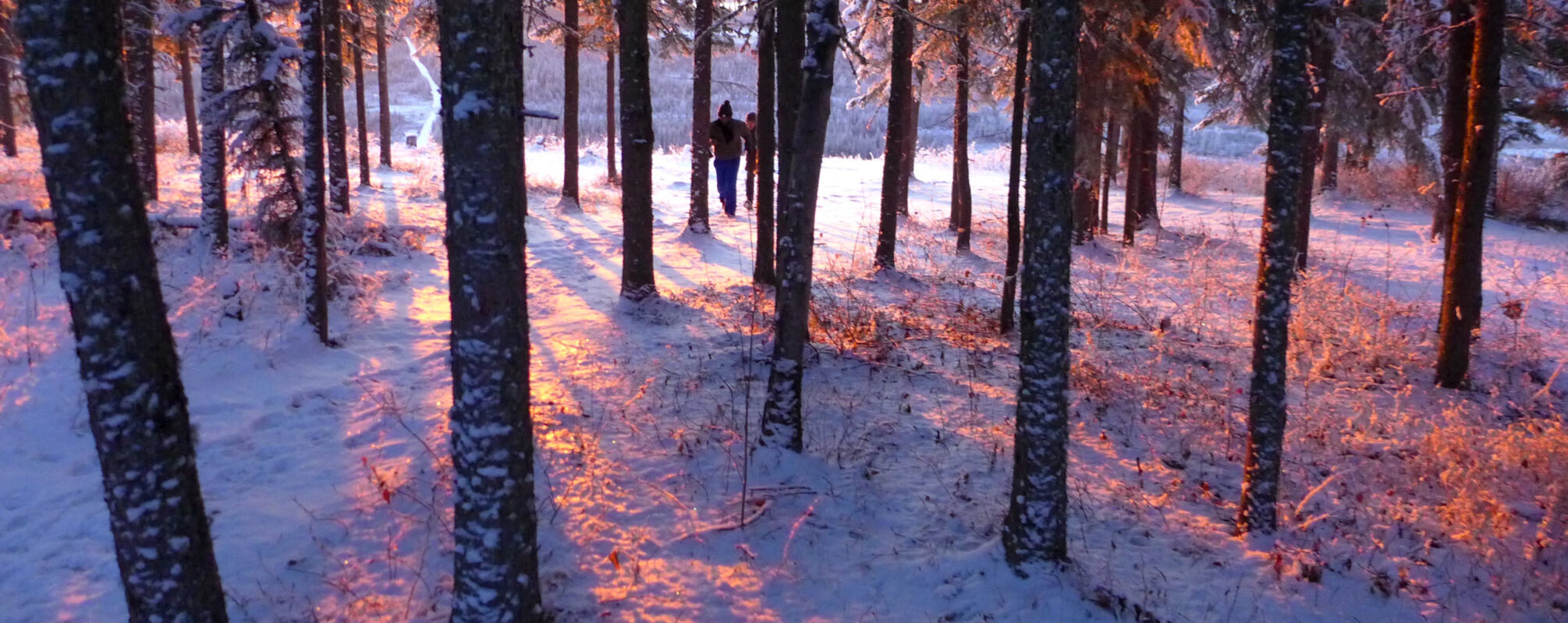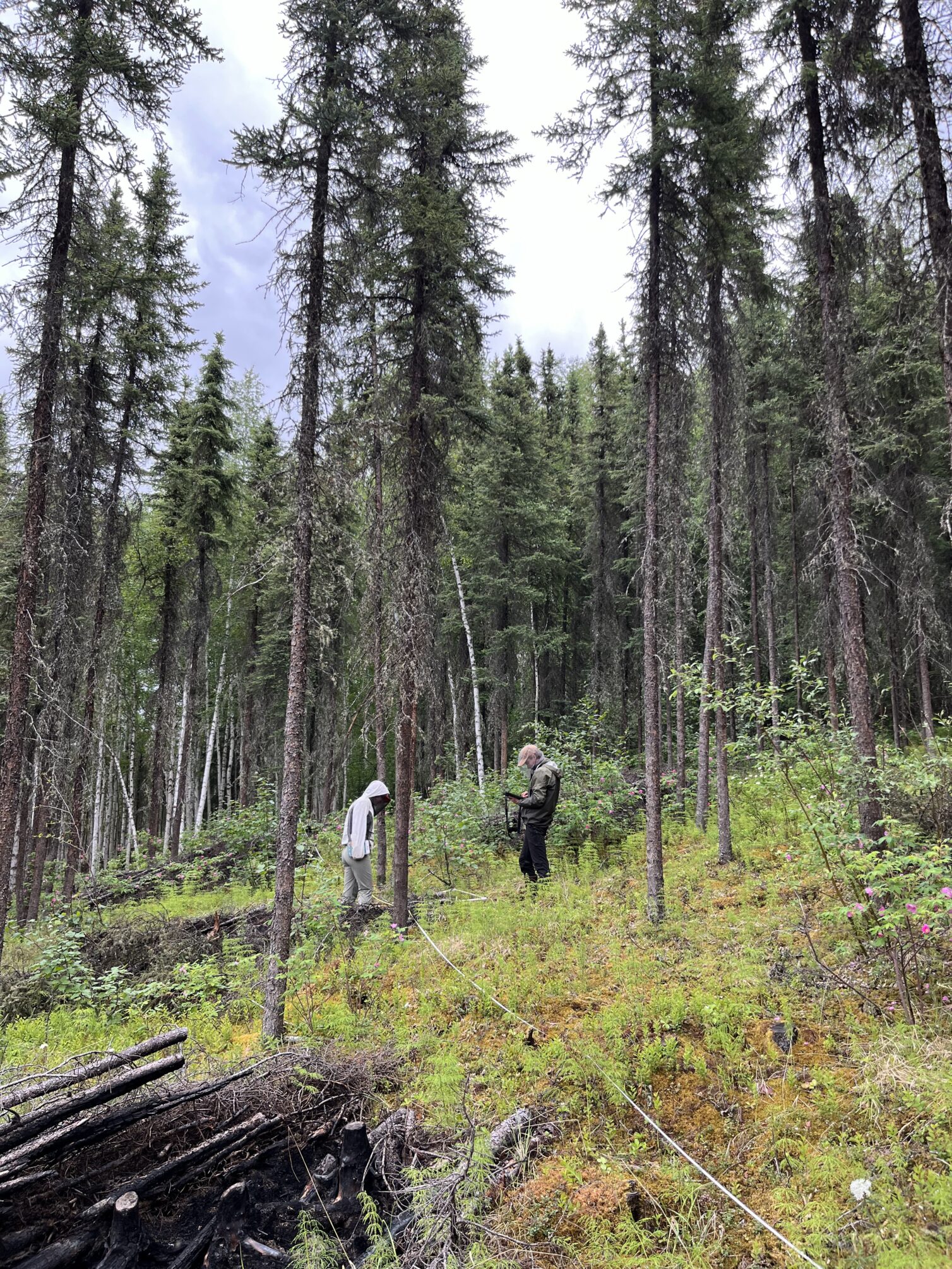
This post is part of the LTER’s Short Stories About Long-Term Research (SSALTER) Blog, a graduate student driven blog about research, life in the field, and more. For more information, including submission guidelines, see lternet.edu/SSALTER
by Nick Link
Much has been written, and more said, on the mosquitoes of Alaska. These meditations on mosquitoes are endless; news articles, postcards, bumper stickers, t-shirts. I’ve never cared for meditations, and the thought of meditating itself feels asinine as mosquitoes buzz incessantly in your ears. As I find myself in the dog days of an Alaskan summer – powerless to change my bug-infested situation – there is no choice but acceptance. So, from parts unknown of the Alaskan Bush, a meditation. Not because I’m spiritual, but because I’m miserable.

Credit: Elishka Pierce, CC BY-SA 4.0.
The little bastards are an omnipresent oppression. Unrelenting. When you kill them, as you do by the dozens, they die like the stormtroopers in Star Wars. Limp bodies falling pathetically out of view. No sound. No gore. Limited writhing, only as much as would be appropriate for a PG-13 rating. They seem to understand and accept that this is their inevitable end. “Of course I’m supposed to slowly tumble towards earth after being swatted out of the air. It was that or be flattened onto the outer shell of a rain jacket.”
When it comes mosquitoes, there are few sensations more haunting than one wandering in to your ear canal. An intrusion of an intimate space that I hadn’t considered before coming North. The rapid buzzing of their wings stimulate all your sensitive little ear hairs. Hairs that have been tuned to significantly less harsh adjustments in air pressure. The sound is debilitating, drowning, and all consuming. The noise is only surpassed in vulgarity by the silence and weight of its ending; that weight being a mosquito now perched upon, and drinking from, the capillaries within your ear.
On a particularly buggy field day, one of undergrad research techs – eager to demonstrate their know-how between semesters – asks, “What ecosystem services do the mosquitoes provide?” “None” I grumble, smacking at three or four on the back of my neck. Fresh out of BIO 212, the undergrads have been taught that all of God’s creatures have a role in the world. Trees make the oxygen we breathe, and bees pollinate the plants we eat. “Certainly the mosquitoes must do something?”
The mosquito reputiates the self-serving and solipsistic notion of ecosystem services (and the notion of God, for that matter). The Earth, and all Her beings, don’t do anything for us. Roses don’t have flowers for us to smell. Soils don’t purify water for us to drink. Mosquitoes, to their credit, don’t even pretend.
But if the mosquito did have to have a human benefit slapped on it, I suppose it would be to build character. In this world there is no rhyme, no reason, just mosquitoes. It’s an important lesson to learn, and one worth learning early. And while that’s not an ecosystem service per se, I suppose it is a societal benefit. For all the trouble they cause, the mosquito brings us together. Something universal to gripe about, a common direction to aim disdain. For all the things we can’t see eye to eye on, large or small, we can all at least agree on one thing; “Damn, the mosquitoes sure are bad today.”

Nick Link is a second year PhD student at Northern Arizona University. Nick’s work with Michelle Mack and Xanthe Walker out of the Bonanza Creek LTER is broadly focused on disturbance and ecosystem ecology in the Boreal forest.










